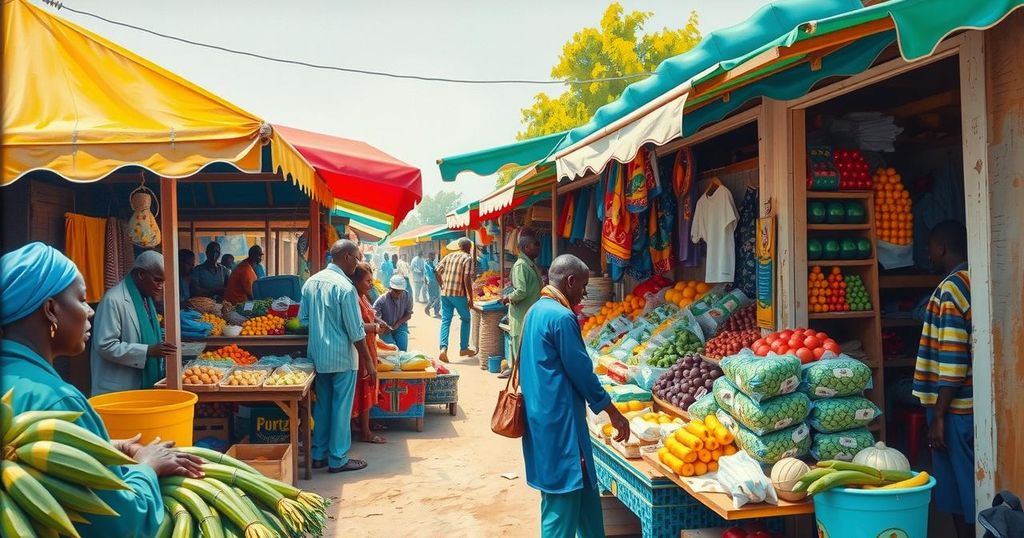Global news
AFRICA, CIVIL WAR, DEVELOPMENT, HUMANITARIAN, HUMANITARIAN AID, KHARTOUM STATE WATER AUTHORITY, MOHAMED KHIDIR, OMDURMAN, OMDURMAN MATERNITY HOSPITAL, OMDURMAN TEACHING HOSPITAL, REFUGEES, SID, SIDDIQ HASSAN FREINI, SOCIAL DEVELOPMENT, SUDAN, WATER AUTHORITY, XI, XINHUA
Fatima Khan
0 Comments
Khartoum Struggles to Recover Amid Ongoing Civil War
- After two years of conflict, Khartoum shows gradual recovery.
- Neighborhood destruction and battle scars remain evident throughout the city.
- Omdurman is leading the way in recovery efforts in Khartoum’s metropolitan area.
- Key local officials note vital roles of grassroots organizations in restoration.
- Utilities like water and electricity still face significant challenges.
Khartoum struggles to rise from the ashes of war
A vehicle was recently spotted near a bustling store in Omdurman city, which is situated just north of Khartoum, Sudan. This sighting on July 3, 2025, reflects a notable shift as the once war-torn city slowly starts to shed its wartime horrors and inch towards a semblance of normalcy. After more than two years of devastating conflict, residents are gradually returning to their homes, although they face the lingering scars of violence and devastation all around them.
Omdurman’s recovery is a testament to resilience
Signs of battle still adorn the landscapes of Khartoum, with neighborhoods laden with destruction and remnants of conflict scattered throughout. Bullet holes tarnish homes and high-rises, and reminders of the ongoing struggle can be seen everywhere. That being said, hope is flickering in the city as residents start to emerge again, and initiatives from both government and local communities work toward restoring essential services. The city of Omdurman, being one of the three main urban centers in Khartoum’s metropolitan area, has shown notable progress in rebuilding efforts. After the Sudanese army returned control to the area in early 2024, local life has begun to recover.
Health and infrastructure slowly return to service
A key player in Omdurman’s recovery has been Siddiq Hassan Freini, the Minister of Social Development for Khartoum State, who highlighted the efforts of both official and grassroots organizations in this endeavor. He noted that civil society organizations significantly contributed to restoring vital services, including access to clean water, electricity, healthcare, and education. According to recent reports, hospitals are gradually reopening, with facilities like the Omdurman Teaching Hospital resuming services following repairs led by health authorities and medical groups. Despite previous targeting and looting during conflicts that left seven major hospitals out of service, there are now four operational hospitals again. Water services are showing signs of improvement as well; the Al-Gamayer and Abu Seid stations are back in operation, with five additional stations currently undergoing repairs. However, infrastructure in Khartoum remains heavily damaged, as destructive remnants of war interrupt basic city functions.
Residents adapt as recovery progresses
Yet, challenges abound, particularly for basic utilities like water and electricity. A resident, Salah Hamad, remarked about the painfully slow pace of life returning to Khartoum. With continues issues regarding water scarcity and an unstable power supply, the recovery is a hard-fought battle. In southern Khartoum, local volunteers are stepping up, working on rebuilding projects like the Al-Azhari Health Center, which is crucial for community health but faced devastation during the war. Ahmed Ismail, a member of the rebuilding committee, emphasized their commitment to restoring essential healthcare services. Meanwhile, electricity remains a severe issue too. Many residents have turned to generators, which operate for limited hours and require scarce and costly diesel. Minibus driver Abdel Basit Arbab shares that transport lines are trying to remain operational, but communities continue to struggle with access to basic necessities. “Recovery comes in stages,” he noted, resonating the endurance that encapsulates the spirit of Khartoum residents.
As Khartoum emerges from the turmoil of war, the slow rebirth of the capital is evident, showcasing resilience in the face of adversity. Omdurman stands out with commendable strides in recovery, powered by the efforts of its community and local authorities. Despite significant hurdles that remain, the restoration of essential services, such as healthcare and water, marks a hopeful turn for the city, even as reconstruction will require years and vast financial resources.




Post Comment